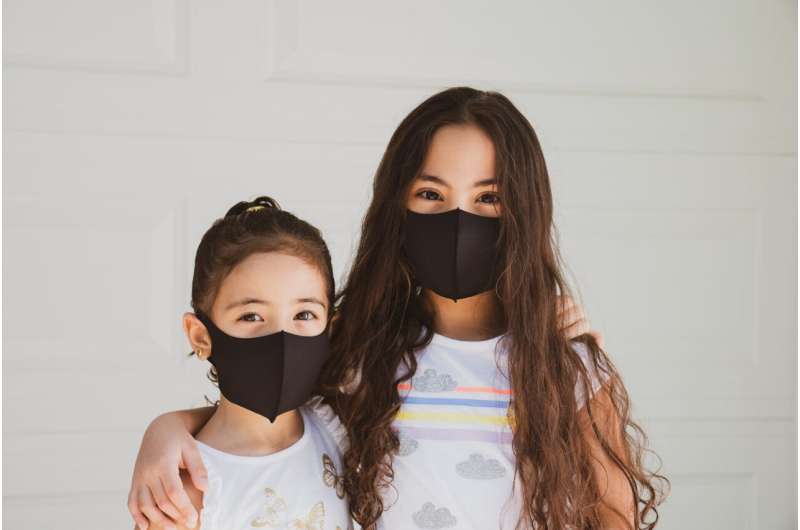Credit: Unsplash/CC0 Public Domain
Q: Now that airlines have dropped mask mandates, is it OK to let my kids travel without masks?
A: The judge's ruling striking down the federal mask mandate on public transportation and in transit hubs and the subsequent appeal by the Justice Department have created confusion about whether flying or riding the train is safe without a mask.
I realize that some families may find it difficult to decide what's best for them. But, for some children, including those too young to be immunized and those with special health care needs, masking is still an important layer of protection.
Face masks can be safely worn by all children 2 years and older, including the vast majority of children with underlying health conditions, with rare exception. In addition to protecting the child, the use of face masks significantly reduces the spread of SARS-CoV-2 and other respiratory infections in schools and other community settings.
Parents of children who are over 2 years of age should strongly consider having them wear a mask in crowded public spaces, on trains, and on planes. Masks are especially important for those who interact with children under age 5, because young children are not yet eligible for the vaccine, and for those who are in close contact with elderly people or those who are immunocompromised or at higher risk for serious disease. Masks also are a good idea in areas where COVID cases are rising. It's important to remember that high-risk children and adults are still vulnerable to severe infection.
Studies have shown that a well-fitting mask helps reduce the spread of the COVID-19 virus. Masks form a barrier that can stop airborne virus particles from being inhaled by an uninfected person.
In addition, everyone ages 5 and older should be vaccinated against COVID-19 and those who are eligible should be boosted. Consider getting a second booster, if you or your child are eligible for one. The vaccine is very effective in helping to prevent hospitalization and death, and a booster reminds the body's immune system about the virus it needs to defend against. This gives the immune system a vital boost.
With the continued dropping of COVID mandates across the country, there will be times when your family is around groups of people who aren't wearing masks. Having a family plan about masks will help your child or teen know what to expect.
Parents can help their kids understand that there are many reasons why adults and children may continue wearing face masks when they are around others. For example, flight attendants, teachers, grocery store workers or ride-share drivers may choose to continue wearing face masks, even if they are not required to do so. Children with special health care needs may rely on masks for important protection so they do not have to miss school or other activities—especially if others around them do not wear masks.
Masking also helps cocoon children who are too young to be vaccinated. Masks can also protect kids who have weakened immune systems that put them at higher risk of serious illness from COVID-19. That's why preschools and childcare centers may have different guidelines about mask wearing indoors. Be sure to check the rules in those places.
Family members who live in the same household do not need to wear masks when they are alone together. But if you are vaccinated and your children are not, you can choose to model mask-wearing behavior in support of your children when you are all out together. For example, everyone in the family can wear masks to the grocery store or when riding the train.
The pandemic continues to impact families in many different ways. As a parent, model empathy toward others. Strongly discourage the mocking of children who choose to wear a mask to protect themselves and their family.
Without the added layer of protection from the COVID vaccine for kids under age 5 just yet, masks are still an important way to protect our loved ones.
©2022 Tribune Content Agency, LLC.
























